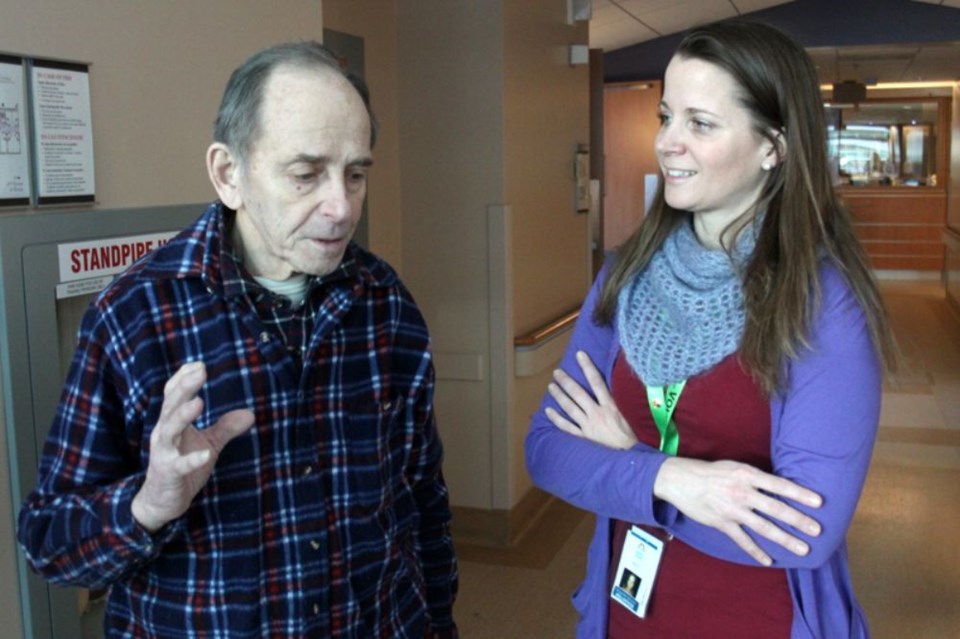THUNDER BAY -- Ayvil Arrius isn’t going to let himself wither away.
Nearing the tail end of his stay at the Thunder Bay Regional Health Sciences Centre, he doesn’t like to stay in one place.
“I do my walks. I move around all the time,” he said.
“I stay in tune with nature and I do my walks and everything else I have to do.”
Helping Arrius stay active while in the hospital are Hospital Elder Life Program volunteers like Mina Hodder, who was walking the halls with him Monday morning.
The program was developed in the U.S. to prevent delirium in hospitalized elderly patients. Delirium is a change in a person’s mental status, usually caused by a medical infection, change of environment and often seen in elderly people.
The elder life program helps prevent the condition by helping patients maintain physical and cognitive functions. Volunteers use orientation, physical exercise, meal assistance and recreational therapy to help reduce the onset of delirium.
The Health Sciences Centre has expanded the program from one to two units and has volunteers working with up to 12 patients now and they’re seeing the results.
“We have seen a decrease in length of stay. We have a zero per cent delirium rate,” said Joy Kolic, elder nurse specialist.
“We’re also seeing a decrease in cognitive and functional decline and we use specific tools to measure that,” she added.
Having volunteers work with the patients also helps take alleviate the workload of the nurses on the unit.
Hodder said she chose to volunteer to fill some time in her life and sees the difference the program makes for patients.
“It helps them a lot being able to keep them active and not just sedentary because when you’re in the hospital, it can be a long time and you’re not stimulated, you don’t have the comforts of home, you don’t have the same people talking to you … you want the mind to keep active and also the body,” she said.
Spending just 30 minutes with a patient can make a big difference, Hodder said, noting they may seem disengaged at first but just by offering companionship, she often sees them eventually open up.
“It’s amazing actually just what two people can do by being together,” she said, adding she doesn’t always work with the same patients, so she doesn’t always know what happens next in their life.
“I know in the moment at least that moment was better than if they were just disengaged laying there waiting with nothing or having to buzz to get a nurse…they might just need someone beside them for a bit,” said Hodder.
